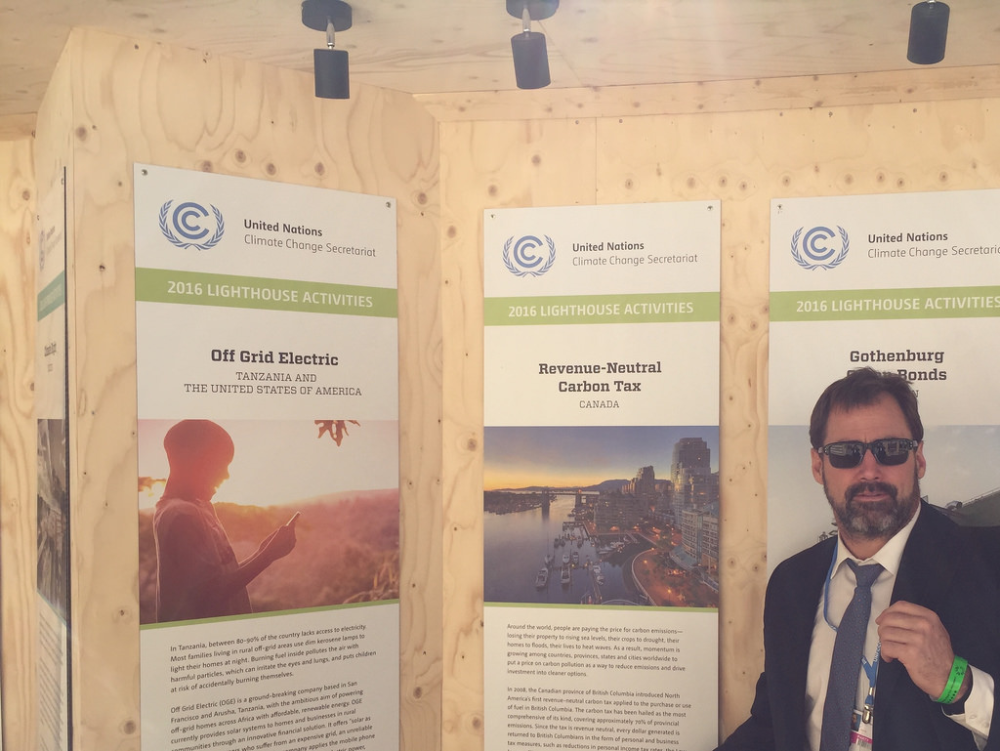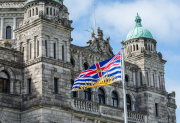British Columbia’s carbon tax is once again being lauded as praise-worthy on the international stage. Today (November 16) in Marrakech, Morocco, the government of B.C. receives the United Nations Framework Convention on Climate Change’s Momentum for Change award for its revenue-neutral tax.
As a climate policy that saw carbon pollution decline while the province’s economy grew, the carbon tax deserves the plaudits. Until it was frozen in 2012, the carbon tax served as an effective example of carbon pricing, and it remains a model that can and should be replicated across Canada and internationally.
Meeting climate targets, however, requires more than one good policy. While B.C.’s carbon tax is a fine example of a good policy, on its own it is not enough. If a climate plan is a cake, the carbon price is the egg: it’s a crucial ingredient, but makes for a disappointing dessert by itself.
A climate plan must contain other important ingredients in addition to carbon pricing, such as regulations to target emissions reductions in specific sectors, incentives to change behaviour, and targeted support for clean energy technology.
So while B.C.’s carbon tax should be celebrated, the province’s recent track record on climate action should not.
The new climate plan that B.C. put forward in August of this year fell flat, especially from a province that used to be a climate leader. The plan doesn’t see emissions start to decline until 2030 and only slowly at that — far too little and far too late for B.C. to do its fair share in the Canadian effort. We need to see renewed climate leadership from B.C. and all provinces and territories in order for Canada to meet its Paris Agreement commitments.

The federal government has also acknowledged the importance of the carbon price as a backbone of Canada’s emerging climate plan. This is the right move. It will position Canada to be competitive as demand for clean energy increases and demand for fossil fuels decreases, with the international community implementing the Paris Agreement.
But similar to the situation in B.C., additional policies and approaches will be needed to work in conjunction with a carbon price to drive emissions down. These additional pieces are expected from the federal government with the release of the pan-Canadian climate framework after this December’s First Ministers’ Meeting.
All of this is occurring against a backdrop of uncertainty created by the election of Donald Trump as the next U.S. president. But the prospect of a U.S. that slows or reverses progress on climate change means Canada and all of the provinces and territories need to step up, not back. Now more than ever, acting on climate change will grow our competitive advantage to attract investment to our country as one that supports innovation. Action on climate change will position our economy to take advantage of the rapidly growing global clean energy technology market.
The federal government is not acting alone to take advantage of this opportunity. It has been working hard alongside the provinces and territories to find solutions — which we are eager to see announced in December. In the meantime, we know that climate plans like the one B.C. put out this summer, which don’t reduce emissions until 2030 or significantly support the clean tech sector, are inadequate to support this effort.
Now more than ever, we need to see leadership on climate, especially at the sub-national level. So after the B.C. government stows this award in its trophy case, it needs to get back to the business of writing the complete recipe — a climate plan that will reduce emissions and increase B.C.’s economic competitiveness.
This article also appeared in National Newswatch.






